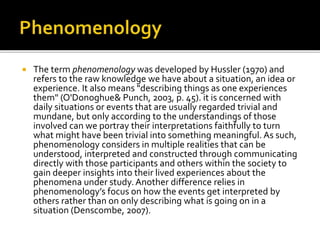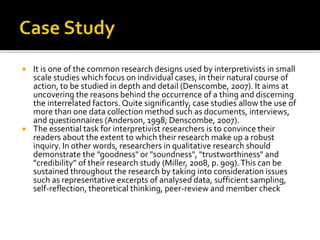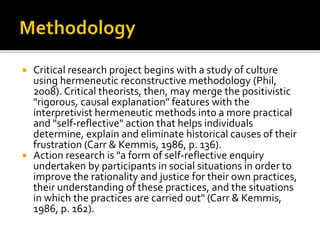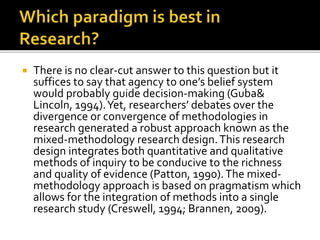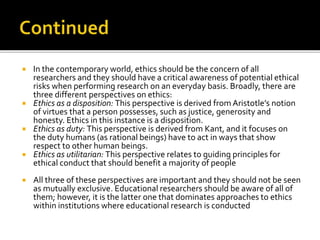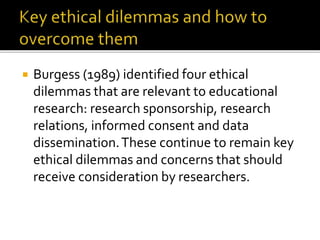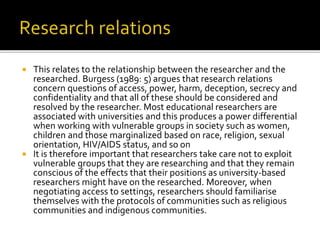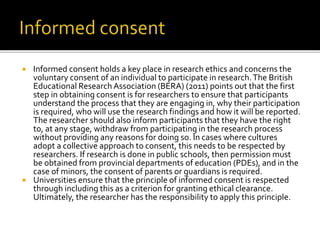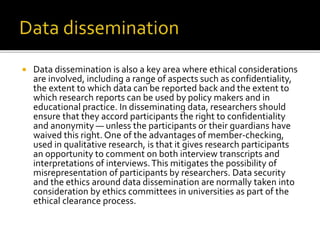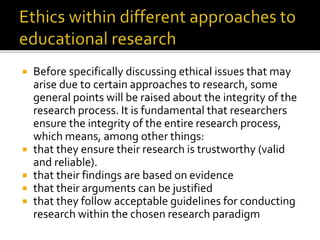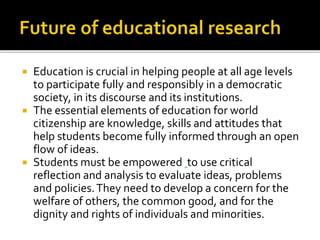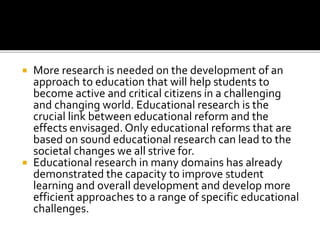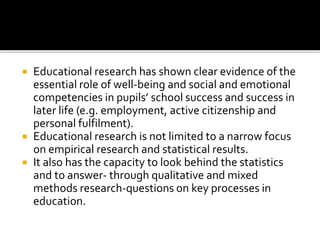This document discusses different views and definitions of research. It notes that research can be defined as a systematic process of gaining new information or answering questions. It also discusses research paradigms and the three main components - ontology, epistemology, and methodology. Positivism, interpretivism, and critical theory are examined as the three major research paradigms. Key characteristics and assumptions of each are outlined. Quantitative and qualitative methodologies are associated with positivism and interpretivism respectively. Specific methodologies like surveys, experiments, ethnography, phenomenology, and case studies are also discussed. The role of ethics in research is briefly covered at the end.

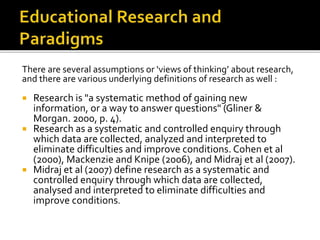
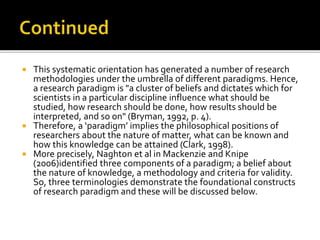
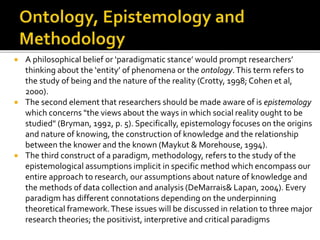
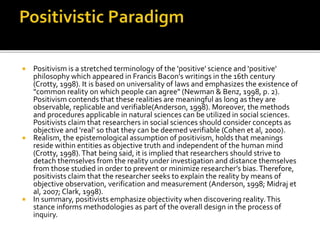
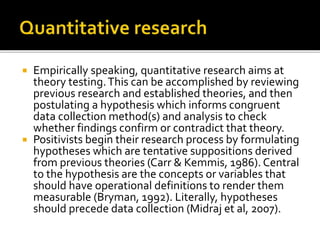
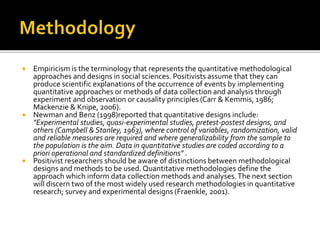
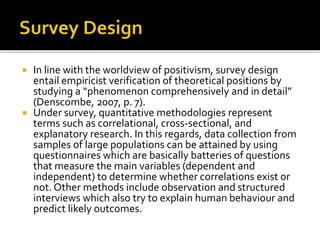
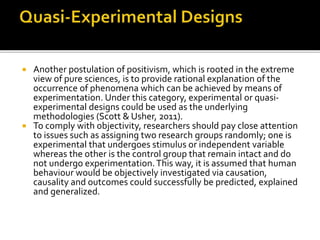
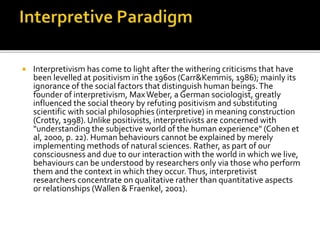
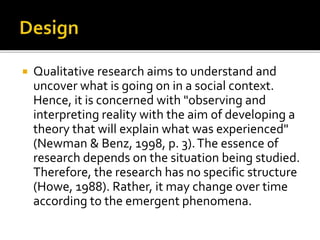
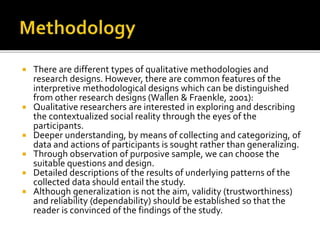
![ Ethnography literally means "descriptions of people or cultures"
(Descombe, 2003, p. 84). From an epistemological point of view, it
is crucial for ethnographers to understand the social behaviour
from the perspectives of research participants (Fattermanl, 2008).
As a research methodology, ethnography gives the researcher the
chance to gain deeper insights of the lives of the studied groups or
individuals in order to, as Malinowski (1922) in Denscombe (2007)
put it, " realize [their] vision of [their] world" (P. 62). However, it
should be recognized that this realization should be "holistic" by
relating it to the socio-cultural context in which it exists.The
findings represent the researcher’s interpretation of informants’
perceptions and their experiences of the phenomenon under
investigation. Excerpts of the participant's discourse and their
analysis should be provided. In general, gaining deeper insights
about the phenomenon is usually emphasized over how
representative the sample is.](https://image.slidesharecdn.com/philosophicalfoundationsofdifferentkindofresearch-190405152057/85/Educational-Research-and-its-future-13-320.jpg)
